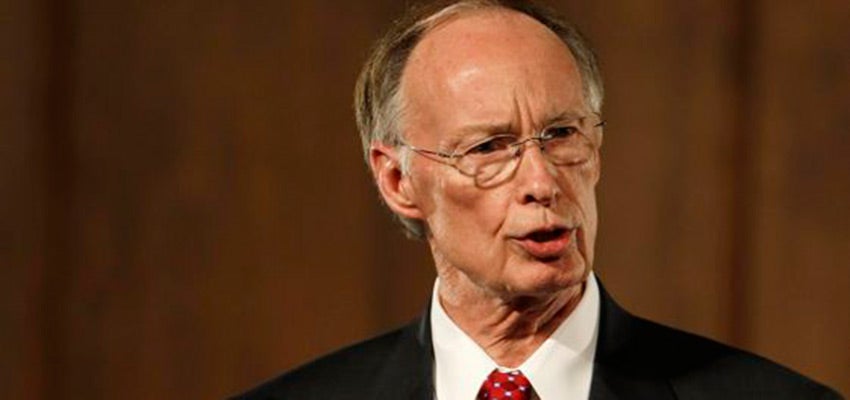Special grand jury seated to investigate Bentley ends work
Published 12:00 am Thursday, April 5, 2018
The special grand jury whose investigations led to the resignation of then-Gov. Robert Bentley last year has been dissolved, with no further charges found.
Supernumerary District Attorney Ellen Brooks announced Wednesday that she and a special grand jury have concluded their investigation of Bentley and others.
The Special Grand Jury empaneled in Montgomery County on July 11, 2016, has issued its final report and has been dissolved by Circuit Judge Johnny Hardwick.
The full report follows:
“We were empaneled by the Honorable Eugene W. Reese, Circuit Judge, on July 1l, 2016, as a Special Grand Jury, on motion of the Attorney General and Order of the Circuit Court.
“During our term as Special Grand Jury members, we reviewed complaints relating to alleged violations of the Alabama Ethics Law (Sections 36-25-1 through 36-25- 30 of the Code of Alabama) and the Alabama Fair Campaign Practices Act (Sections 17-5-1 through 17-5-21 of the Code of Alabama). The allegations we reviewed included the following:
“1. Ethics violations, misappropriation of funds and state property, and abuse of power by then-Secretary of Law Enforcement Spencer Collier;
- Ethics violations, misuse of state equipment and law enforcement personnel, and abuse of power at the Office of the Governor;
- Obstruction of justice and witness tampering at the Office of the Governor;
- Personal use of campaign funds and violations of the Fair Campaign Practices Act, including failure to timely file reports and receiving funds outside the open contribution period by former Governor Robert J. Bentley;
- Ethics violations at the Office of the Governor concerning the inappropriate direction of state funding or jobs on particular projects to specific people; and
- Nonprofit abuse and ethics violations involving ACEGOV and economic development projects.
After receiving complaints in spring 2016, the Special Prosecutions Division of the Office of the Alabama Attorney General conducted a thorough investigation of these complaints, reviewing over 100,000 documents, more than 100 witness statements, and files from other investigative agencies and legislative committees.
“This investigation included a detailed financial analysis of 35 separate sets of financial records, as well as a comparative analysis and review of the financial investigations conducted by other state and federal agencies.
“Over the past two years, the Special Prosecutions Division presented the results of its investigation. We heard from 53 witnesses and received dozens of exhibits. We have thoroughly investigated without any outside interference.
“Pursuant to this investigation, former Governor Robert J. Bentley pleaded guilty to one count of knowingly converting campaign contributions to personal use (in violation of Section 36-25-6 of the Code of Alabama), and one count of failing to file a major contribution report (in violation of Section 17-5-8.l(c)), and resigned his office. “We did not pursue charges of use of office for personal gain (under Section 36-25-S(a)) or use of state resources for private benefit (under Section 36-25-5( c)) because there was no evidence that former Governor Bentley or any of the other individuals we investigated actually received any illegal financial gain or were covered by the law. Both of these facts must be proved to obtain a conviction.
“Further, we determined that no other charges were warranted. Many of the allegations we investigated were not supported by the facts. With respect to the other allegations, the facts did not constitute a crime.
“We found a number of serious concerns about current state law that hinder successful prosecution:
- The Ethics Act does not cover non-spousal intimate or romantic relationships.
- The law authorizes the governor to appoint the secretary of law enforcement and does not prohibit the governor from initiating, directing, or receiving reports on criminal investigations for illegitimate political purposes.
- State law does not prohibit non-government personnel from performing the functions of a public employee while receiving payment from a private entity for that work (so-called loaned executives), and there is a question whether the Ethics Act clearly covers such individuals.
“While this list is not exhaustive, the issues are sufficiently serious as to warrant the Alabama Legislature to revisit the Alabama Ethics Law and the Alabama Fair Campaign Practices Act as soon as possible. In that light, we ask the Special Assistant Attorney General heading this investigation to deliver a copy of this report to the appropriate state and local officials for their consideration.”





